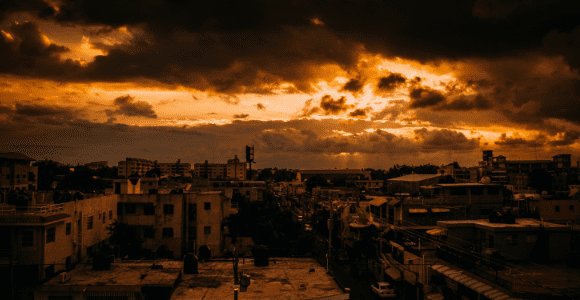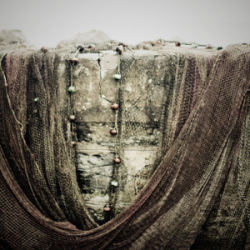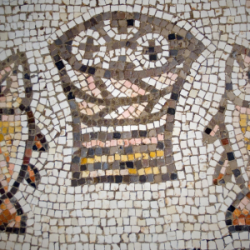Welcome readers! Please subscribe through the button on the right.
(Read this series from the beginning at Part 1 and Part 2.)

This makes me think of how so many living at this stage of the pandemic now long for a return to normal. I don’t want to go back to that normal, a world that disproportionally harmed certain sectors of society while giving others privilege, power, and property. I don’t want a post-pandemic world that looks like the pre-pandemic world. We can do better. And we have an opportunity to do just that now. With all the talk of “building back better,” we must continue to focus on building back “better for whom?” Over the last year, the billionaire class has only become more wealthy despite almost 5 million lives lost globally and over 742,000 within the U.S.
So Jesus’ critique of the Temple and Jerusalem was not about being against Judaism, but rather his opposition to an economic, political, and social system that creates and worsens poverty. I wonder what Mark’s Jesus would say of the United States today if he were on earth?
Jesus’s path pointed us toward life, life to the full (John 10:10), specially for the poor (Luke 6:22)—life and life more abundantly for all. In the gospels we get a picture of Jesus who, focused on sustainable (eternal) life, would have criticized any system that created luxury for a few at the expense of the many. Following Jesus’ path means following him in rejecting any system that manufactures scarcity to create wealth at the expense of vulnerable people.
I’m reminded of the words of liberation theologian Gustavo Gutierrez:
“The poor person does not exist as an inescapable fact of destiny. His or her existence is not politically neutral, and it is not ethically innocent. The poor are a by-product of the system in which we live and for which we are responsible. They are marginalized by our social and cultural world. They are the oppressed, exploited proletariat, robbed of the fruit of their labor and despoiled of their humanity. Hence the poverty of the poor is not a call to generous relief action, but a demand that we go and build a different social order.” (Gustavo Gutierrez, The Power of the Poor in History, p. 44)
Gutierrez’ words resonate with Mark’s picture of Jesus. What would a different social order look like to you? Can you imagine a world without poverty? What would we need to have in place to eliminate poverty? Jesus’ gospel spoke of a God of life who loved all and desired “life to the full” for all the objects of that love.
Are these just words? Do we who follow this Jesus really believe that a world like that is possible? Can poverty really be overcome? The child tax credit that has already lifted 40% of children out of poverty here in the U.S., and the US just approved billions of increased dollars for the U.S. military budget. I wonder what would happen if we apportioned that same money toward a war against global poverty instead?
It’s convenient for Christians to interpret Jesus’ criticism of the Temple as being about Judaism rather than being about addressing poverty. After all, poverty is a matter of human responsibility. We create it. We can change it. If we choose to interpret Jesus’ words as the latter, then we, too, are called to address poverty. That is the life-giving interpretation; the other bears the fruit of poverty being inevitable or unchangeable and therefore the fruit of death and harm.
I’ll close this week with the words of Nelson Mandela from a speech he gave in 2005 at the Make Poverty History rally in London’s Trafalgar Square:
“Like slavery and apartheid, poverty is not natural. It is man-made and it can be overcome and eradicated by the action of human beings.”

















